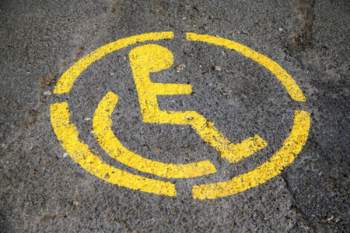
Minnesota Disability Benefits

How to Claim Minnesota Disability
Having a condition that impedes your ability to work isn’t any fun in Minnesota. How else would anyone make a living? Your choices are fairly limited.
Thankfully, MN disability benefits are available to provide those benefits provided your disability qualifies.
Medical Conditions That Qualify for Minnesota Disability
This is important, because it could mean the difference between getting that acceptance letter for Minnesota disability benefits and getting a denial. The Social Security Administration lists these specific Minnesota disabilities that would qualify in what’s called a Blue Book:
1. Musculoskeletal Minnesota Disabilities (Back Conditions)
2. Cardiovascular Conditions (Heart Failure/Coronary Artery Disease)
3. Senses and Speech Issues (Vision and Hearing Loss)
4. Respiratory Illnesses (COPD or Asthma)
5. Neurological Disorders (Multiple Sclerosis, Cerebral Palsy, Parkinson’s Disease, Epilepsy)
6. Mental Disorders (Depression, Anxiety, Schizophrenia, Autism, Retardation)
7. Immune System Disorders (HIV/AIDs, Lupus, Rheumatoid Arthritis)
8. Digestive Tract Problems (Liver Disease, IBD)
9. Kidney Disease
There Are Exceptions When It Comes to Minnesota Disabilities, Though….
Take note of this: you don’t need to have any one of these Minnesota disabilities to qualify. It can simply be a condition that can impede you from your work, and you must show proof of that.
That’s the reason for the entire process and screening for Minnesota disabilities, actually. In that case, though, hiring a good Minnesota disability attorney would be essential to help you through the entire process of qualifying for Minnesota disability.
Keep in Mind, Though, That This Is a Financial Issue When It Comes to MN Disability
Getting MN disability benefits is basically about money. So your income will be scrutinized. Your work history will be viewed and examined. It is an objective system, though, handled by the MN Disability Determination Services (DDS).
The Process for Applying for MN Disability Benefits
There’s one word you need to keep in mind – evaluation. That’s what the DDS and the SSA will do in regards to your application.
Typically, the DDS will determine if your impairment due to your disability is severe enough to warrant benefits. They will check to see if it matches with any of the disabilities listed in the Blue Book.
They also consider evidence of whether or not you can actually do your past job, whether you can be expected to do any type of job at all, keeping in mind all of these characteristics that they will learn about in your application:
1. Limitations of Condition
2. Age
3. Education
4. Skills
After everything has been reviewed, they then make the decision.
What Happens When You Receive a Denial?
It can happen – for any reason. That’s the purpose actually for a good disability attorney. You can search under employment law firms anywhere in your city or county through the phonebook, the internet, or simply by asking around with friends and family.
The process for finding a lawyer is actually quite easy. Simply be sure to set up a shortlist of attorneys to choose from, and from there you can do the appropriate research on which lawyer might be right for your case.
Take advantage of free consultations as well to ensure the best possible decision for your case. Once you’ve made the choice, you can then appeal for the decision of your claim for disability.



















